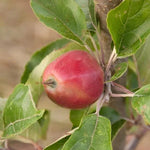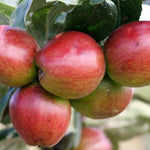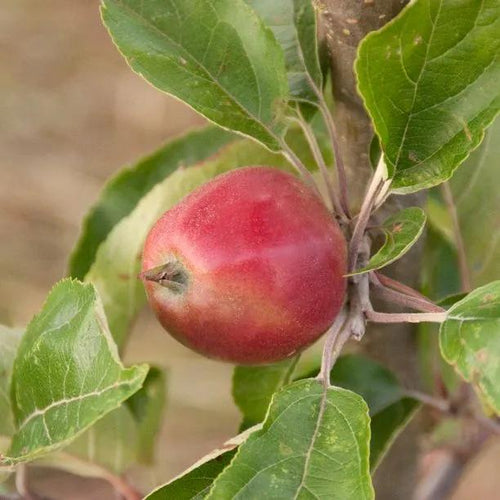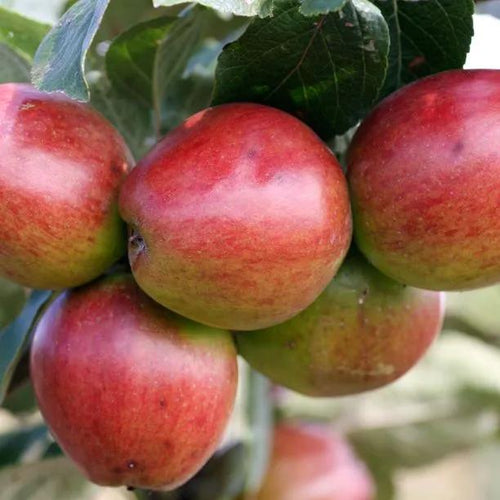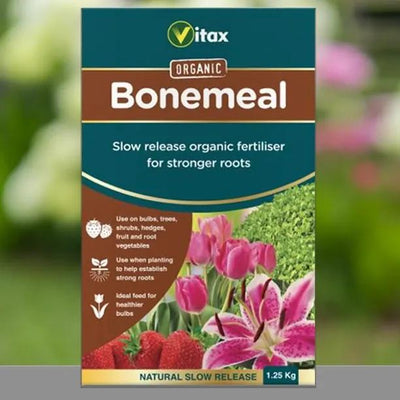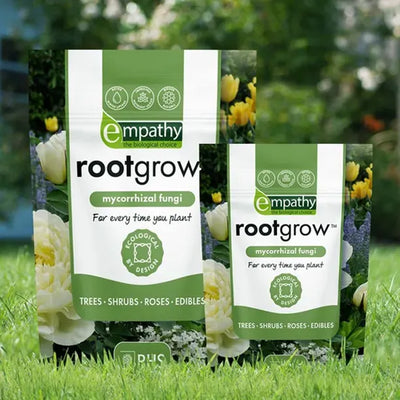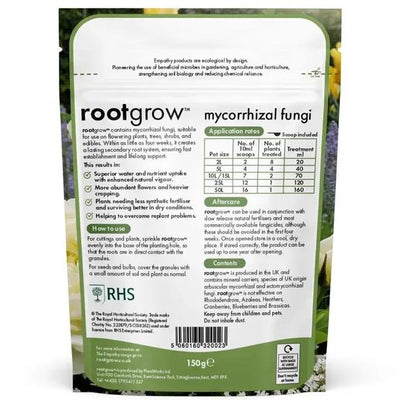 Delivered across the UK
Delivered across the UK Which Best Plant Supplier 2025
Which Best Plant Supplier 2025 1 Year Bareroot Plant Guarantee
1 Year Bareroot Plant Guarantee
About Hangy Down Cider Apple Trees
Hangy Down Cider Apple Trees
Hangy Down, or Horners, are cider apples that have been left behind by the mainstream cider industry, but are adored by small growers.
They aren't the most photogenic specimens, with pale yellow green skin, mottled by patchy red flushes. The tree is slow growing compared to most other apple trees, especially on heavy soils, though once it matures it'll become a heavy cropper.
The fruit has a high sugar content, giving them a mild bittersweet flavour that makes them fantastic additions to any cider mixture, although they don't have enough body to make a good cider all by themselves.
They're very resistant to scab and canker, which tend to be more of a problem in the warmer, wetter areas in western Britain and so should be considered for organic growing in those regions.
Browse our range of apple trees or the full variety of fruit trees.
Features
- Cider: Mild bitter sweet.
- Spur bearer.
- Not self fertile
- Pollinator
- Pollination Group E
- RHS Plants for Pollinators
- Crops in Mid-October
Pollination Partners for Hangy Down
Crab apples are the best pollinators, bar none. Golden Hornet is a good choice. Hangy Down is an early flowerer and can also be pollinated by fertile apple trees in the early or mid-season groups of the Apple Tree Pollination guide.
Have a look at our quick guide if you are new to brewing cider at home.
Hangy Down Rootstocks
MM106 rootstocks give you the freedom to grow a medium to large tree or to train your tree into just about any form you like, such as a bush, cordon, fan or espalier.












 Secure, One-Tap Checkout
Secure, One-Tap Checkout
 Hand Picked, Delivered to Your Door!
Hand Picked, Delivered to Your Door! 1 Year Bareroot Guarantee
1 Year Bareroot Guarantee